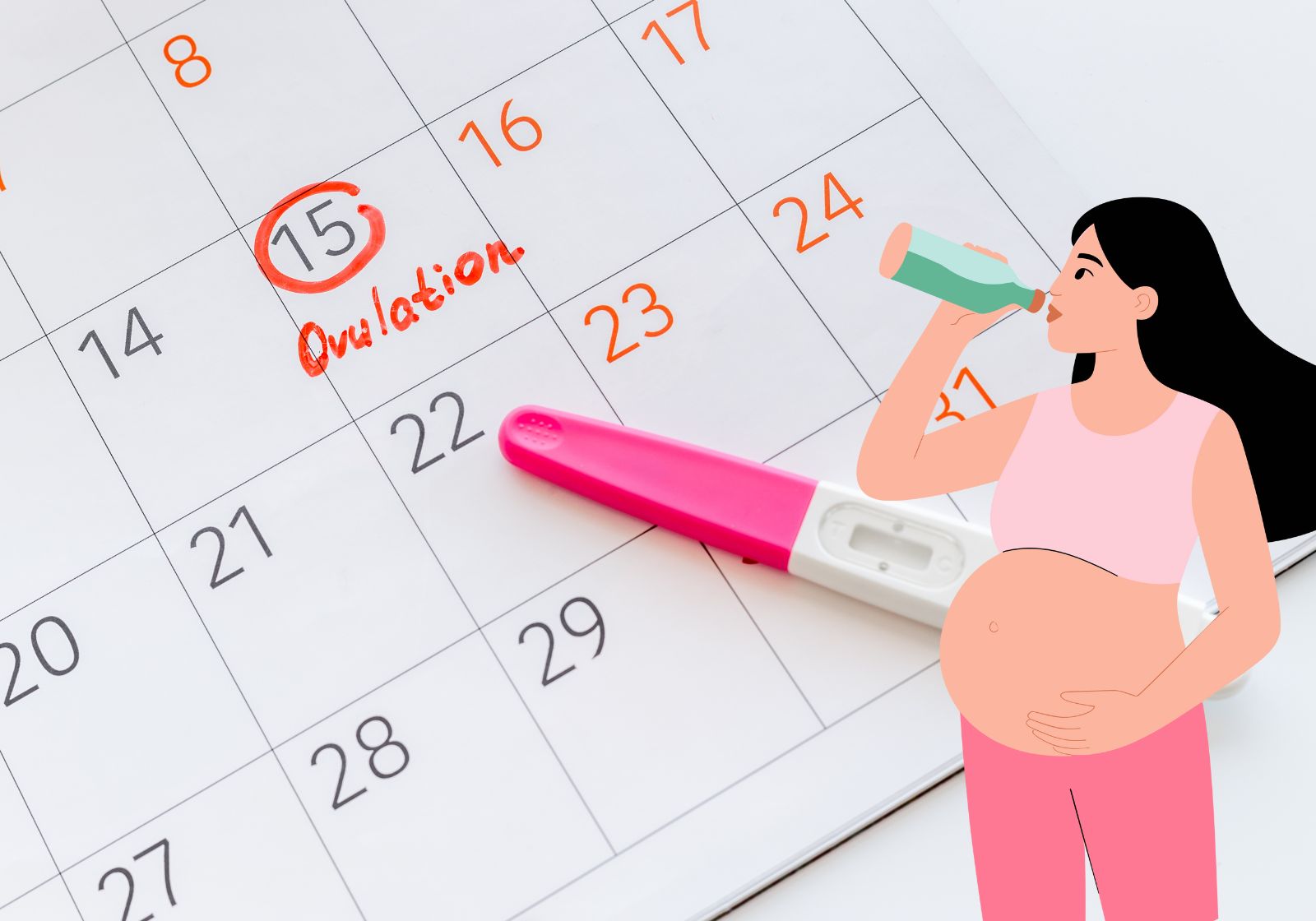10 Ways to Boost Fertility Naturally

For many women, the journey toward conception is filled with anticipation, emotion, and questions. While modern medicine offers remarkable fertility treatments, many prefer to start with natural methods that nurture their bodies and support conception gently. The good news? Small, consistent changes in lifestyle, diet, and mindset can significantly improve fertility potential for both women and men.
This guide explores ten research-supported, holistic ways to boost fertility naturally—without false promises or gimmicks—just practical, nurturing wisdom for your body and future.
Quick-Start to Boost Fertility
- Eat whole, colorful foods
- Track your cycle and fertile days
- Sleep 7–9 hours nightly
- Limit alcohol and caffeine
- Relax—stress management matters
1. Nourish Your Body with Fertility-Friendly Foods
What you eat directly affects reproductive health. A balanced diet supports hormone regulation, egg quality, and overall energy—three key pillars of fertility.
Focus on whole, unprocessed foods: colorful fruits and vegetables, whole grains, nuts, seeds, and lean proteins. Healthy fats are vital too—think avocado, olive oil, and omega-3-rich fish like salmon or sardines.
Studies show that women who follow a Mediterranean-style diet often experience higher fertility rates. The combination of antioxidants, healthy fats, and fiber helps balance insulin levels and reduces inflammation—both important for regular ovulation.
Tip: Add a handful of walnuts or a drizzle of extra virgin olive oil to your daily meals for a natural fertility boost.
2. Maintain a Healthy Weight—Without Obsession
Body weight influences ovulation and hormonal balance. Both underweight and overweight women may experience irregular cycles or difficulty conceiving.
That said, fertility isn’t about perfection or extreme fitness—it’s about balance. A healthy body mass index (BMI) between 20 and 24 is often associated with optimal fertility.
Regular, moderate exercise such as brisk walking, yoga, or swimming helps regulate insulin and stress hormones. Overtraining or severe dieting, however, can backfire by disrupting ovulation.
Tip: Focus on sustainable habits, not strict scales. Listen to your body—it often tells you what it needs.
3. Support Hormonal Balance with Key Nutrients
Certain nutrients play a critical role in reproductive health. Among the most important are:
-
Folic acid: Essential before conception for preventing neural tube defects.
-
Zinc: Supports ovulation and sperm production.
-
Iron: Low levels may lead to anovulation or irregular cycles.
-
Vitamin D: Deficiency is linked to reduced fertility in both men and women.
-
Coenzyme Q10 (CoQ10): Shown to improve egg and sperm quality with age.
Consider a high-quality prenatal supplement, especially if you’re trying to conceive. It helps fill nutritional gaps even in a well-rounded diet.
Tip: Ask your healthcare provider to check your vitamin D and iron levels before starting supplements.
| Nutrient | Role in Fertility | Food Sources |
|---|---|---|
| Folic Acid | Supports healthy ovulation and reduces neural tube defects | Leafy greens, beans, citrus |
| Zinc | Regulates hormones and improves egg quality | Pumpkin seeds, eggs, seafood |
| Vitamin D | Enhances reproductive hormone balance | Sunlight, fortified milk, salmon |
4. Reduce Stress and Allow Rest
Stress doesn’t cause infertility, but chronic stress can interfere with hormonal rhythms. Cortisol, the body’s main stress hormone, can suppress reproductive hormones like estrogen and progesterone.
Incorporate stress-reduction techniques that genuinely calm your nervous system—such as mindfulness, gentle yoga, journaling, or nature walks. Even ten minutes of daily deep breathing can make a difference.
And don’t underestimate the value of rest. Regular, restorative sleep allows your body to repair and rebalance itself hormonally. Aim for seven to nine hours per night.
Tip: Treat rest as an essential part of fertility care, not a luxury.
“Fertility isn’t a race—it’s a rhythm. Patience and self-care often do more than perfection ever could.”
5. Track Your Cycle and Understand Your Fertile Window
Timing matters. Many women conceive faster when they learn to recognize their fertile window—the few days around ovulation when conception is most likely.
You can track ovulation through basal body temperature (BBT) charts, cervical mucus changes, or ovulation predictor kits. Over time, patterns emerge that help you identify your most fertile days.
Tip: Have intercourse every other day during the fertile window to increase chances naturally without pressure or scheduling stress.

6. Limit Alcohol, Caffeine, and Smoking
Moderation is key. Research suggests that high caffeine and alcohol intake can reduce fertility in both men and women. Smoking, on the other hand, is unequivocally damaging—it accelerates egg loss, ages reproductive cells, and lowers sperm count.
If you’re planning to conceive, consider reducing caffeine to one cup of coffee per day and limiting alcohol to occasional social events. Eliminating smoking entirely is one of the most effective steps toward better reproductive health.
Tip: Replace your evening drink with sparkling water and lime—it mimics the ritual without harming your hormones.
7. Create a Calm, Supportive Environment
Your external environment often reflects your internal state. A calm, nurturing space—free of unnecessary stressors—supports hormonal balance and emotional readiness for conception.
Declutter your living space, simplify routines, and surround yourself with people who uplift rather than pressure you. Fertility journeys can be emotionally taxing; emotional well-being matters as much as physical health.
Tip: Build rituals of calm—perhaps a candlelit bath, an evening walk, or a gratitude list before bed.
8. Encourage Male Fertility Health
Fertility is a shared journey. Up to 40% of conception challenges involve male factors. Encourage your partner to support his reproductive health with nutrient-rich foods, regular exercise, and stress management.
Zinc, selenium, and vitamin C are especially important for sperm count and motility. Avoiding excessive heat exposure (like saunas or hot tubs) also helps protect sperm quality.
Tip: Approach fertility as a team—shared habits foster unity and reduce pressure.
9. Minimize Exposure to Environmental Toxins
Modern life exposes us to a cocktail of chemicals that can affect fertility—pesticides, BPA, phthalates, and heavy metals among them. These endocrine disruptors can mimic or block natural hormones.
To reduce exposure:
-
Choose glass or stainless-steel containers over plastic.
-
Wash fruits and vegetables thoroughly or buy organic when possible.
-
Avoid scented personal care products with synthetic fragrances.
Tip: Switch to natural cleaning products or DIY options like vinegar and baking soda to reduce toxin load at home.
10. Be Patient and Gentle with Yourself
Fertility isn’t a race—it’s a rhythm. While it’s normal to want quick results, conception can take time even under perfect conditions. For most couples, it happens within 6 to 12 months of regular, unprotected intercourse.
If it takes longer, that doesn’t mean failure—it may simply mean your body needs more support or time to rebalance. Compassion and patience are as essential as nutrition and exercise.
Tip: Focus on overall health, not just pregnancy. A nourished, balanced body is your best foundation for motherhood.
Fertility Q&A
How long should I try before seeing a fertility specialist?
If you’re under 35, try for 12 months before consulting a specialist. Over 35, seek advice after 6 months of trying.
Do supplements really make a difference?
They can support your nutritional base but work best combined with balanced eating, rest, and stress management.
Can stress alone prevent pregnancy?
Chronic stress can disrupt hormone rhythms, but it’s rarely the only cause. Managing it supports overall fertility health.
In Brief
- Eat a nutrient-rich diet
- Exercise moderately
- Reduce stress and sleep well
- Track your ovulation window
- Limit toxins and caffeine
Did You Know?
- Women are born with all their eggs—about one to two million at birth.
- Sperm take around 74 days to mature, so male lifestyle changes show results after two months.
- Maca root and chasteberry have long been used to support fertility naturally.
Final Thoughts
Fertility is a complex, beautiful process influenced by many small choices rather than one big secret. By nurturing your body and mind with intention, patience, and care, you create the best possible conditions for conception—naturally and lovingly.
Whether your path to motherhood is quick or takes time, remember: each step toward better health and self-awareness is already a powerful part of the journey.
Disclaimer: The articles and information provided by the Vagina Institute are for informational and educational purposes only. This content is not intended to be a substitute for professional medical advice, diagnosis, or treatment. Always seek the advice of your physician or another qualified health provider with any questions you may have regarding a medical condition.


 Deutsch
Deutsch  English
English  Español
Español  Français
Français 




